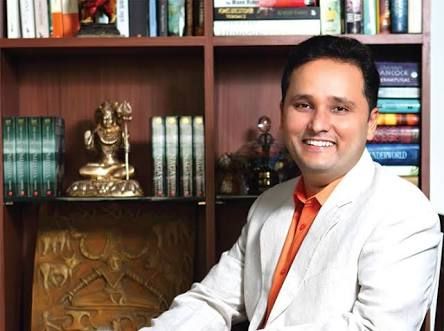Immortal India - An Understanding Of The Book
Jun 15, 2019 • 40 views
Immortal India, a collection of author Amish talks.
A banker turned writer in the genre of mythological fiction.

Popularly known as the literary pop star of India.
The core philosophy captured by his compositions captures well the essence of life. In his words, "Philosophy to a story is the soul to a body".
A glimpse to the world of Amish captured well in this interview:
Immortal India's trailer:
An understanding of the author's first non-fiction book:
The interpretation and significance of Indian pantheology is captured well in this compilation. It essentially shows how storytellers over centuries have captured the essence of human life via mythology where Shiva is depicted as the man of contradictions and Ram as the man of rules.
The storytelling deployed makes it at the end a wonderful read well supplied with relevant content.
The various gender biases held among the masses is also uprooted via the depiction of Shakti making the readers essentially realise the equality beneath. The statistics backed up by the references are insightful and relevant in this era.
The secular nature is also depicted in the ideology of faith where it is clearly indicated that when faith becomes unquestionable it becomes an example of blind faith. It states clearly that the Indian history has witnessed various examples of religious liberalism where the matter doctrined in religious texts was extremely scientific.
The style used is very colloquial and vernacular. It lacks the usage of jargon vocabulary but keeps the content very unique making him one of the most original thinkers of our time.
The essence he draws from personal life gives the required energy to lead life with a sense of fulfilment and faith rather than with hollow greed.
The stance offered by him on extreme issues is crucial in realising what is necessary in building a sensible and pragmatic nation. It isn't necessary to be agreeable to every stance but most stances are very creative solutions to the existing problems.
The way he draws several incidents from his personal life makes it more relevant in terms of understanding the society. The various instances from his childhood have filled it more with knowledge than abundance which in turn has added a purpose and direction to his life.
The essence of India is well captured drawing away the blinds from its stature in the international economy over centuries. It is a land that has witnessed various civilisations and has captured well the fundamentalism in its composition and attitude which has managed to survive centuries unlike the other older civilisations.
The way it had been a land of knowledge not technology for centuries is well depicted through various statistical historical evidences.
Eminently he has approached the pantheology and mythology making them relevant, pragmatic and scientific.
The blend offered is significant in understanding India.
